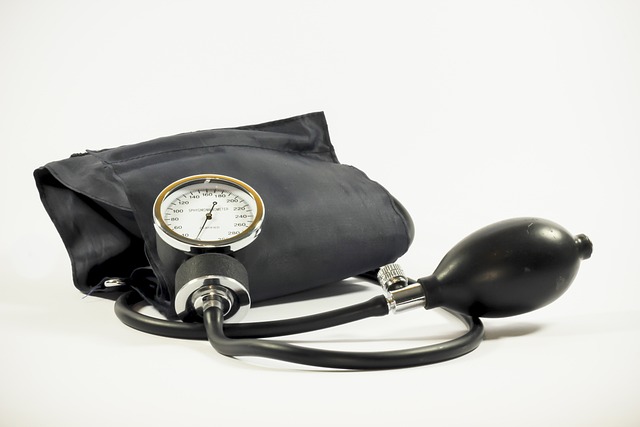Healthcare professionals face unique risks, including legal requirements and potential litigation over medical errors. Liability insurance for medical practices is vital in mitigating these risks by protecting providers from financial loss due to malpractice claims. This specialized coverage accounts for the complexities of healthcare delivery, ensuring practitioners can defend against lawsuits and cover settlements or awards, thereby offering them peace of mind to focus on patient care. Key components include professional liability coverage, general liability, and business expense coverage. Selecting suitable insurance involves evaluating practice-specific risks, comparing policies, and understanding details like coverage limits and exclusions. Real-world case studies highlight the importance of tailored liability coverage for diverse medical specialties, acting as a safety net against financial strain and legal issues, enabling healthcare providers to prioritize patient care without worry.
In the dynamic landscape of healthcare, professionals face unique risks that demand specialized coverage. This article delves into the critical aspect of liability insurance for medical practices, exploring the essential protection it offers against potential legal claims and financial exposure. We dissect the peculiarities of healthcare risks, emphasize the role of liability insurance in mitigating these challenges, and guide readers through choosing the ideal policy to safeguard their practices. Prepare to navigate the intricate world of medical liability coverage with confidence.
- Understanding the Unique Risks of Healthcare Practices
- The Importance of Liability Insurance in Medicine
- Types of Liability Coverage for Medical Professionals
- How to Choose the Right Insurance Policy for Your Practice
- Case Studies: Real-World Examples of Liability Claims
- Mitigating Risk and Protecting Your Future with Comprehensive Insurance
Understanding the Unique Risks of Healthcare Practices

Healthcare professionals face unique risks on a daily basis that differ significantly from traditional business operations. Their responsibilities encompass life-and-death decisions, complex legal requirements, and constant exposure to potential litigation. Each medical practice, whether it’s a clinic, hospital, or private practice, operates within its own intricate web of regulations and expectations.
Liability insurance for medical practices is paramount in mitigating these risks. It protects healthcare providers from financial loss resulting from medical malpractice claims, ensuring they have the resources to defend against such lawsuits and cover any settlements or awards. This specialized coverage accounts for the unique dynamics of healthcare delivery, providing peace of mind for professionals who dedicate their lives to patient care.
The Importance of Liability Insurance in Medicine

In the high-stakes world of healthcare, liability insurance for medical practices is not just a consideration—it’s an indispensable shield for professionals and practices alike. As medicine continues to evolve, so do the complexities of patient care, leaving practitioners vulnerable to lawsuits stemming from misdiagnoses, treatment errors, or even negligence in communication. A robust liability insurance policy acts as a financial backstop, covering legal fees, settlement costs, and potential damages, allowing healthcare professionals to focus on patient welfare without the constant shadow of financial exposure.
Beyond financial protection, liability insurance provides peace of mind and career security. It ensures that medical practitioners can continue to serve their communities without the fear of ruinous lawsuits. In a field where every decision matters, this safety net enables healthcare professionals to make critical calls without second-guessing their every action, ultimately enhancing patient outcomes and fostering a culture of continuous improvement within medical practices.
Types of Liability Coverage for Medical Professionals

Medical professionals face unique risks and liabilities in their daily practice, which is why having adequate liability insurance for medical practices is paramount. This type of insurance protects healthcare providers from potential lawsuits and financial losses arising from medical errors, malpractice, or accidents. The coverage options can vary but generally include several key components.
One crucial aspect is professional liability insurance, also known as malpractice coverage. It shields doctors, nurses, and other medical staff against claims of negligence, such as misdiagnosis, incorrect treatment plans, or failure to obtain informed consent. Additionally, general liability insurance covers unexpected events like patient slip-and-falls or property damage within the medical facility. Many policies also include coverage for business expenses if a lawsuit forces the practice to close temporarily.
How to Choose the Right Insurance Policy for Your Practice

Selecting the ideal liability insurance for your medical practice is a crucial step in safeguarding your professional future and ensuring patient satisfaction. The first consideration is assessing your practice’s unique risks and needs. Reflect on factors such as the size of your practice, types of services provided, and any potential legal vulnerabilities specific to your medical field. For instance, specialized practices may face distinct liability challenges compared to general clinics.
Next, compare different insurance policy options, focusing on coverage limits, exclusions, and deductibles. Ensure that your chosen policy adequately covers malpractice claims, including legal fees and settlement expenses. It’s also essential to verify if the insurance provider offers additional benefits like medical professional liability coverage, which can protect against accidents or errors in patient care. Reading policy documents thoroughly and seeking clarification from insurance representatives is vital to making an informed decision.
Case Studies: Real-World Examples of Liability Claims

In the dynamic landscape of healthcare, medical professionals constantly navigate a complex web of responsibilities and potential risks. Liability insurance for medical practices serves as a shield against unforeseen circumstances that could lead to significant financial burdens and legal repercussions. Case studies from real-world scenarios highlight the diverse nature of liability claims in this sector.
For instance, a study examined a pediatrician’s office where a patient was misdiagnosed, leading to a delay in treatment. The resulting lawsuit not only incurred substantial legal costs but also impacted the practice’s reputation and operations for months. Similarly, a dental practice faced claims after a routine procedure caused unexpected complications, resulting in a lengthy and costly defense. These examples underscore the importance of tailored liability insurance for medical professionals, which accounts for unique risks associated with different specialties and settings.
Mitigating Risk and Protecting Your Future with Comprehensive Insurance

In the high-stakes world of healthcare, managing risk is an integral part of ensuring long-term success and stability. This is where comprehensive insurance steps in as a lifeline for medical professionals and practices. By securing liability insurance for medical practices, healthcare providers can safeguard themselves from potential financial pitfalls associated with malpractice claims, accidents, or unexpected events within their facilities.
Comprehensive insurance packages are designed to offer multi-layered protection. They cover not only the practice itself but also individual physicians and healthcare staff, ensuring that everyone is shielded from significant financial losses. This proactive approach to risk management allows medical professionals to focus on patient care without constant worry, knowing that their future is secured against unforeseen circumstances.
